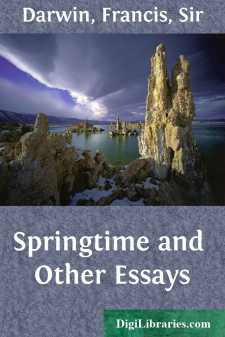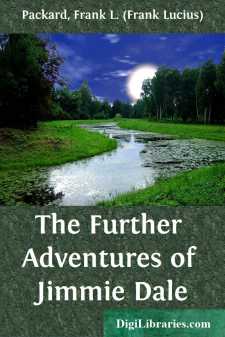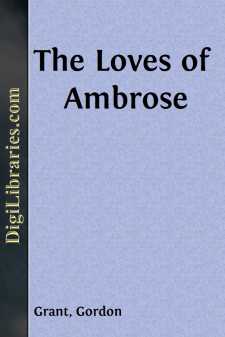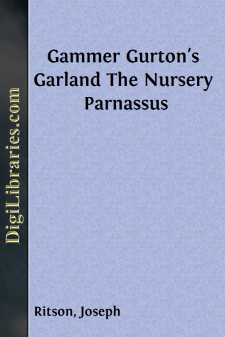Fiction
- Action & Adventure 180
- Biographical 15
- Christian 59
- Classics
- Coming of Age 5
- Contemporary Women 3
- Erotica 8
- Espionage/Intrigue 12
- Fairy Tales, Folklore & Mythology 236
- Family Life 169
- Fantasy 117
- Gay 1
- General 596
- Ghost 32
- Historical 808
- Horror 43
- Humorous 160
- Jewish 25
- Legal 4
- Medical 22
- Mystery & Detective 315
- Political 49
- Psychological 41
- Religious 64
- Romance 159
- Sagas 11
- Science Fiction 730
- Sea Stories 113
- Short Stories (single author) 537
- Sports 10
- Suspense 1
- Technological 8
- Thrillers 2
- Urban Life 31
- Visionary & Metaphysical 1
- War & Military 173
- Westerns 199
Classics Books
Sort by:
Richard made an early start that morning in search of employment, and duplicated the failure of the previous day. Nobody wanted him. If nobody wanted him in the village where he was born and bred, a village of counting-rooms and workshops, was any other place likely to need him? He had only one hope, if it could be called a hope; at any rate, he had treated it tenderly as such and kept it for the last....
more...
by:
Francis Darwin
Governesses used to tell us that the seasons of the year each consist of three months, and of these March, April, and May make the springtime. I should like to break the symmetry, and give February to spring, which would then include February, March, April, and May. It has been said that winter is but autumn “shyly shaking hands with spring.” We will, accordingly, make winter a short link of...
more...
CHAPTER I SMARLINGHUE A diminutive gas-jet's sickly, yellow flame illuminated the room with poverty-stricken inadequacy; high up on the wall, bordering the ceiling, the moonlight, as though contemptuous of its artificial competitor, streamed in through a small, square window, and laid a white, flickering path to the door across a filthy and disreputable rag of carpet; also, through a rent in the...
more...
by:
Mrs. Molesworth
I myself have never seen a ghost (I am by no means sure that I wish ever to do so), but I have a friend whose experience in this respect has been less limited than mine. Till lately, however, I had never heard the details of Lady Farquhar's adventure, though the fact of there being a ghost story which she could, if she chose, relate with the authority of an eye-witness, had been more than once...
more...
by:
Gordon Grant
THE DEPARTUREAmbrose Thompson opened his front door and looked out. It was May, the sun had just risen over Pennyroyal, and before him lay Kentucky's carnival of spring. The boy drew a deep breath that seemed to rise and quiver over his face like a breeze coming away at the end of his long, curiously emotional nose. "Glory, what a day!" he whispered; "seems about good enough to...
more...
THE WIFE OR THE WUDDY. “There was a criminal in a cartAgoing to be hanged—Reprieve to him was granted;The crowd and cart did stand,To see if he would marry a wife,Or, otherwise, choose to die!‘Oh, why should I torment my life?’The victim did reply;‘The bargain’s bad in every part—But a wife’s the worst!—drive on the cart.’” Honest Sir John Falstaff talketh of “minions of the...
more...
CHAPTER I. The Widow and her Child. On the night of Friday, the 26th of November, 1703, and at the hour of eleven, the door of a miserable habitation, situated in an obscure quarter of the Borough of Southwark, known as the Old Mint, was opened; and a man, with a lantern in his hand, appeared at the threshold. This person, whose age might be about forty, was attired in a brown double-breasted frieze...
more...
CHAPTER I INTRODUCING THE PRINCIPAL CHARACTERS "If I'm not mistaken," said Calvin Parks, "this is the ro'd where Sam and Sim used to live!" He checked his horse and looked about him. "And there—well, I'm blowed if that ain't the house now. Same old pumpkin-color; same old well-sweep; same old trees; it certinly is the house. Well!" He looked earnestly at...
more...
by:
Thomas Otway
ACT THE FIRST. SCENE I. A GARDEN.Enter Castalio, Polydore, and Page.Cas.Polydore, our sportHas been to-day much better for the danger:When on the brink the foaming boar I met,And in his side thought to have lodg'd my spear,The desperate savage rush'd within my force,And bore me headlong with him down the rock.Pol.But then——Cas.Ay, then, my brother, my friend, Polydore,Like Perseus mounted...
more...
by:
Joseph Ritson
THE FROG AND MOUSE.There was a frog liv'd in a well,Kitty alone, Kitty alone;There was a frog liv'd in a well,Kitty alone and I.There was a frog liv'd in a well,And a farce mouse in a mill.Cock me cary, Kitty alone,Kitty alone and I.This frog he would a wooing ride,Kitty alone, etc.This frog he would a wooing ride,And on a snail he got astride.Cock me cary, etc.He rode till he came to my...
more...











